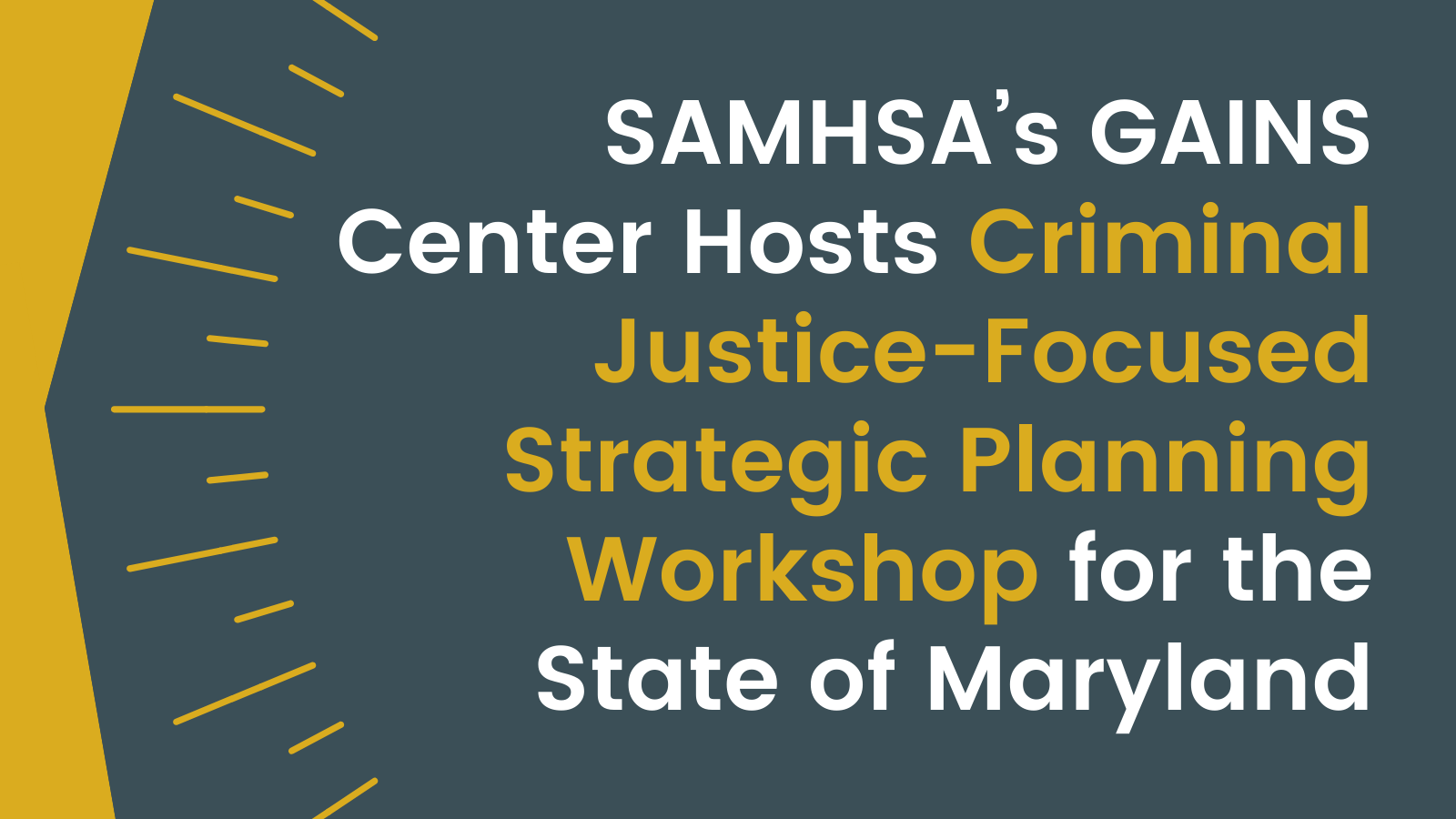In November 2020, SAMHSA’s GAINS Center hosted the State Summit on Behavioral Health and the Justice System in coordination with the Commission to Study Mental and Behavioral Health in Maryland, led by Lieutenant Governor Rutherford. This state-level strategic planning workshop was designed to inform the work of the state’s Public Safety and Judicial System and Crisis Services subcommittees and to guide targeted legislative appropriations for crisis services and jail diversion.
The goals of the virtually held Summit were the following:
- Identify opportunities for coordination and collaboration among state and local stakeholders
- Inform state and local stakeholders about best practices in the behavioral health and correctional fields
- Consider the impact of healthcare reform and state behavioral health and criminal justice initiatives on justice-involved populations
- Introduce the Sequential Intercept Model (SIM) as a planning tool to strategically inform legislation, policy, planning, and funding
Summit participants represented the legislative, behavioral health, and criminal justice systems. Among the 224 attendees present were mental health, substance use treatment, human services, corrections, advocates, law enforcement, health care (emergency department and inpatient acute psychiatric care), academia, and court representatives.
Day one of the Summit included three panel presentations organized by SIM intercept (Intercepts 0/1, 2/3, and 4/5). In each of these panel presentations, speakers represented a mix of state department officials and on-the-ground service providers. In each panel discussion, speakers highlighted best and promising practices, lessons learned, and current challenges.
On day two of the Summit, attendees broke out into small group discussions organized by SIM intercept to discuss lessons learned from the previous day’s session, identify resources and gaps at their intercept of focus, and set priorities for change.
After the Summit, SAMHSA’s GAINS Center staff members examined the Commission’s work to date and reviewed the priorities for change. Staff members developed recommendations to further enhance and coordinate Maryland’s behavioral health and criminal justice work. Recommendations included the following:
- Address racial and ethnic disparities and integrate a trauma-informed approach across all intercepts of the SIM.
- Formalize a statewide planning body and broaden the associated county-level planning committees to address the needs of justice-involved persons with mental or substance use disorders.
- Develop a mental health-criminal justice “Center of Excellence” or expand the existing evaluation system to track program development, centralize resources, and provide technical assistance.
Maryland will take these recommendations under advisement and work with the GAINS Center on implementing these recommendations.


